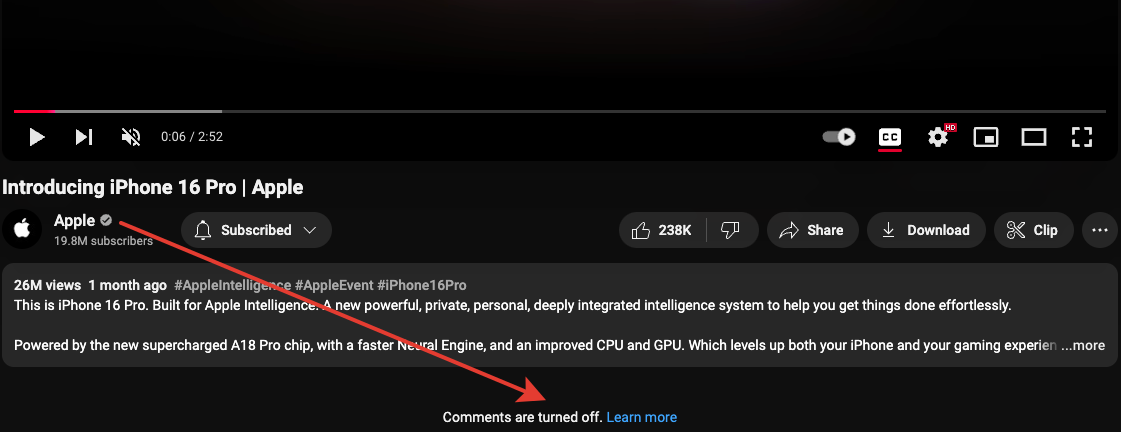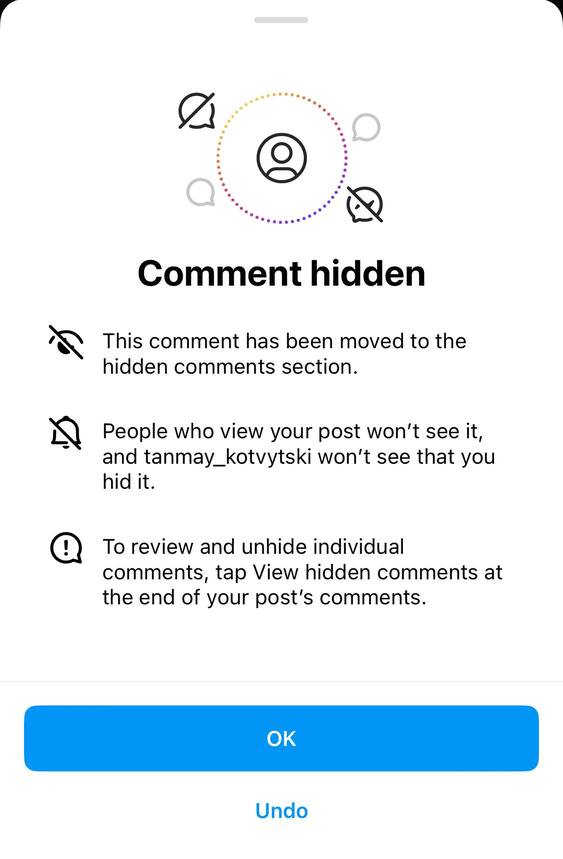
Deleting or limiting social media comments is a bold statement to say that users’ voices don’t matter and that their opinions can be disregarded. It’s important to note that not all comments will be positive, and that’s okay. Everyone has different views and perspectives, and companies should be respectful of the diversity of opinions out there.
However, some companies choose to delete or restrict public comments on their social media pages(e.g. Apple), a strategy that can have unintended negative consequences. This article explores why brands should embrace open dialogue and avoid the temptation to censor feedback.
Companies should not fear negative comments on social media posts, but instead, see them as an opportunity to learn and improve. By allowing all comments, positive and negative, companies can demonstrate that they value their customer’s opinions and are open to making changes. This creates trust and transparency, which is beneficial for everyone.

1. Transparency Builds Trust
Consumers expect brands to be open and transparent. Deleting or restricting comments can make it seem like a company is hiding something or unwilling to listen to criticism. When brands allow both positive and negative comments to be visible, it shows they are authentic, transparent, and willing to address issues. This openness can build trust and strengthen the brand’s reputation.

2. Feedback Drives Improvement
Public comments offer valuable insights into what customers think about a brand’s products, services, and practices. Restricting feedback means missing out on crucial information that could help improve offerings. Instead of deleting comments, brands should view them as opportunities to learn, adapt, and better serve their audience.
3. Engagement Over Censorship
Social media thrives on engagement. By deleting or limiting comments, brands risk stifling the interaction that makes social platforms vibrant and engaging. Active engagement, even with criticism, can turn potential negative situations into positive outcomes. Responding to concerns or complaints shows customers that their voices are heard, enhancing customer loyalty and fostering a sense of community.
4. The Risk of Backlash
Deleting or restricting comments can lead to backlash, with users calling out brands for censorship. This can escalate into a public relations crisis that causes far more damage than the original comments would have. When consumers feel that a brand is trying to silence them, they may take their grievances to other platforms, amplifying the issue and attracting negative attention.
5. Authenticity Over Perfection
In an era where consumers value authenticity, brands that allow a range of feedback are seen as more credible. People understand that no product or service is perfect, and an entirely positive comment section can appear curated and fake. Allowing real, diverse feedback, and responding thoughtfully, demonstrates authenticity and a genuine desire to improve.
6. Legal and Ethical Considerations
In some regions, restricting or deleting public comments could lead to legal challenges, especially if it is seen as silencing specific groups or viewpoints. Ethically, brands should consider the implications of limiting speech on their platforms. Upholding freedom of expression can contribute to a more open, trustworthy environment that benefits both the brand and its consumers.
Best Practices for Managing Public Feedback
Instead of deleting or restricting comments, brands can adopt strategies that encourage constructive engagement:
- Respond Promptly and Politely: Address issues raised in comments with a respectful, empathetic tone.
- Set Clear Community Guidelines: Define what kind of language or content is unacceptable, and enforce these rules consistently. This helps manage spam or inappropriate content without stifling genuine feedback.
- Engage Positively With Critics: Sometimes, critics can become advocates when their concerns are acknowledged and addressed.
- Use Feedback Constructively: Analyze recurring themes in public comments to identify areas of improvement.
Restricting or deleting public comments on social media can create more problems than it solves. Brands that embrace open feedback, even when it is critical, demonstrate transparency, authenticity, and a commitment to improving their products and services. By fostering genuine dialogue, brands can build stronger relationships with their customers and ultimately enhance their reputation in the marketplace.

